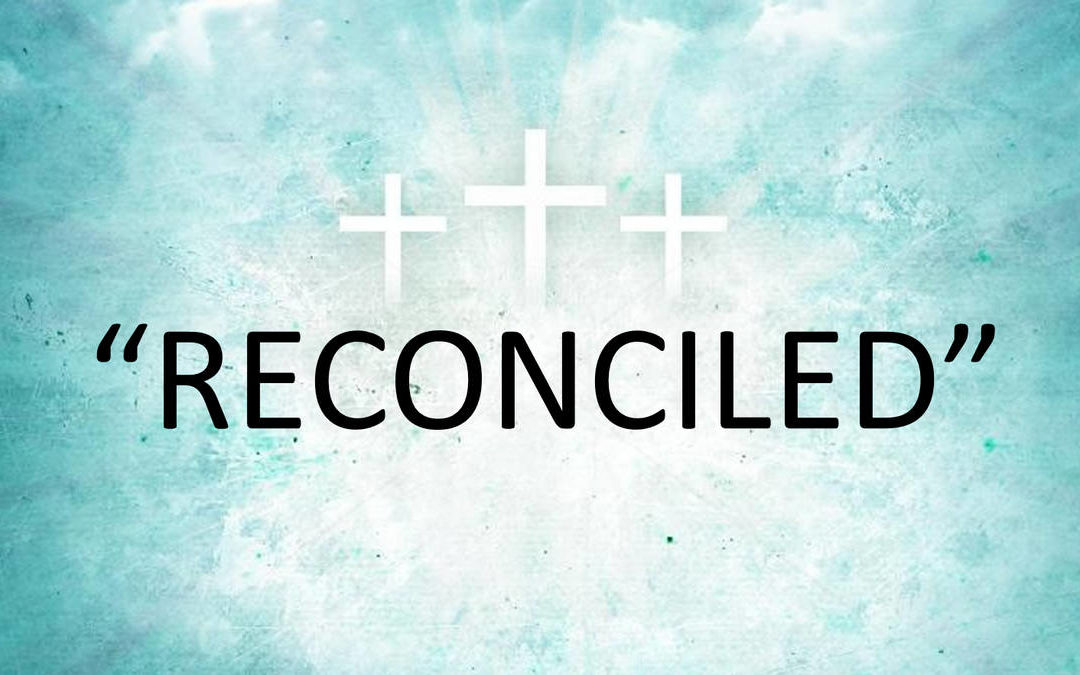“And you, who once were alienated and hostile in mind, doing evil deeds,
He has now reconciled in His body of flesh by His death,
in order to present you holy and blameless and above reproach before Him.” (Colossians 1:21-22)
Just how destitute is our condition apart from God? Paul explains in Ephesians 2:12 that separate from Christ we are completely without hope because, being sinners by nature, we are enemies of God (Col. 1:21, Rom. 1:21). And from God’s perspective, He hates all workers of iniquity. As a result, without Christ, humanity is in a state of double jeopardy – that is, we are at odds from both sides at the same time.
So, for hope to enter the picture there must be a double reconciliation. From God’s perspective, there must be a turning away of His wrath. And from man’s perspective, there must be a turning toward God.
In His great wisdom, God sent His covenant Mediator, our great Savior, to heal the breach that sin created between God and man. Christ’s sacrifice atoned for the sins of all His people, and He reconciled them to God by His death on the cross. He removed the wrath of God from them.
God’s justice was satisfied… and man’s guilt for sin was removed by Christ’s suffering; His substitutionary death on the cross was necessary and sufficient to accomplish both. We know that truth because Paul clearly teaches Christ secured reconciliation to God for those who believe in Him by faith (Rom. 5:10; 2 Cor. 5:18-19; Col. 1:20-21).
This atonement of Christ is such a supernatural reconciliation that our sins are not imputed to us since they have been imputed to Christ. He was made a sin offering for us, a reconciliation accomplished by the substitution of Christ in our place. Christ’s atonement gloriously exhibits God’s divine plan to reconcile mercy with justice, untying a knot which otherwise could never have been loosed.
Michael Harrison said, “By the atonement we have an astonishing display of the divine mercy, which is so great that God ‘spared not his own Son,’ that He might spare us.”
Because of the atoning work of Christ, repentant sinners are delivered from all condemnation resulting from the fall and subsequent wrath of God for sin. Christ redeemed us from the curse of the law, being made a curse for us! It is this Jesus who delivered us from the wrath to come.
We who were alienated from God and enemies in our mind by wicked works, yet now He has reconciled in the body of His flesh through death – the only way by which He can present us holy and blameless before God. And where there is no blame before God, there can be no wrath from God.
- I have no need, Lord, to seek salvation by good works. Because in Your divine, sovereign wisdom You created a plan of redemption that takes into account the fact that I am a hopeless sinner, alienated from You and at enmity with You until You draw me by Your Spirit, through Your Word, to Yourself. And once I come to You, humble and repentant, and accept Your gift of salvation, You wash my sins away. There’s nothing I can do to earn such a salvation – no amount of goodness on my part – no observances of the law or bondage to the law will earn reconciliation to You. Jesus Christ is my only deliverer, my only hope.
- The blood of Christ, applied by faith, removes the guilt of my sin and replaces it with Your light, Your love, and Your peace. Of course I still sin, Lord, but You promised that when I sin I have an advocate in Jesus Christ, my Savior and Mediator.
- The righteousness I have in Jesus Christ is an everlasting righteousness because my standing in Him is secure. You blessed me with an eternal redemption through the work of Christ, which is effectual, complete, and ongoing. It reaches down into my very soul and cleanses away all sin – past, present, and future (1 John 1: 7).
- Such a reconciliation, such an everlasting righteousness in Christ is of infinite value to me. It is everlasting because it is Your righteousness, Lord! (Jer. 23:6; Heb. 9:14). It is more powerful to save than Adam’s sin is to destroy or condemn me. Your redemption is infinitely sufficient, because your mercy is also everlasting and always prevails high above my sins. Can any thought be greater than this for me to consider?
Further References for Col. 1:21-22
Rom. 5:10; Eph. 1:4, 2:12, 5:27; Rom. 8:7; Titus 1:15; Ps. 58:3


